And I Chose Writing
Kaitlyn Dunnett/Kathy Lynn Emerson here. Some years ago, a close friend I first got to know when we were working in our college theater department asked me why I was no longer involved in community theater. Once upon a time I’d been a dedicated backstage person, occasionally acting, and also dabbling in choreography, since I had a fairly extensive background in ballet and modern dance. In the normal way of things, I might have moved on to directing plays, as my friend had.
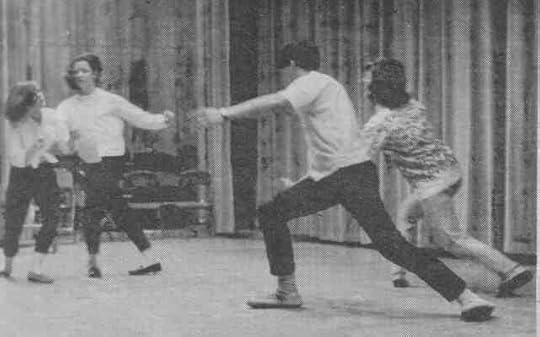
dance team rehearsal, The Music Man, Liberty High School 1965
I had to think for a moment before I answered her. In high school, college, and during the years when my husband was stationed in Virginia Beach in the Navy, I loved being part of putting on a play—the sense of community, the friendships formed, the euphoria of creating something others enjoyed. Of course there was a downside, too. A play’s run inevitably ended. Afterward, cast and crew members moved on to other things and tended to drift apart. Furthermore, recapturing the “magic” of one theatrical experience isn’t always possible with the next show.
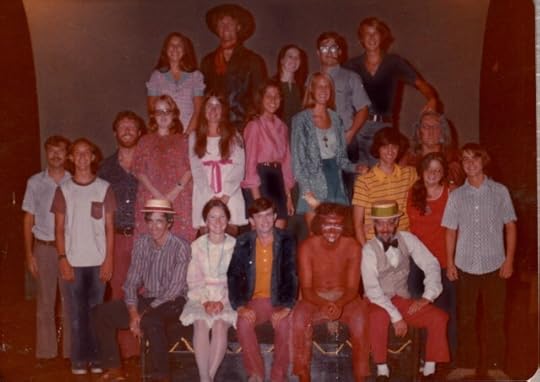
cast and crew of The Fantasticks at the Little Theater of Virginia Beach 1973
The more I thought about it, the more I realized that the process of preparing and presenting a play to the public is remarkably similar to writing a novel. A director (who is usually also acting as the producer in an amateur company) not only has to wrangle actors (characters), but also supervise the selection and arrangement of sets, props, costumes, lighting, sound, and is (perhaps most importantly) also responsible for interpreting the script. No matter what the playwright originally wrote, a director can always make changes, even altering the sex of a main character or the time period in which the play is set.
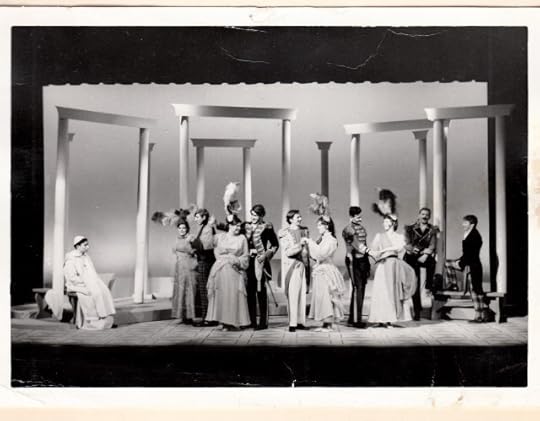
Much Ado About Nothing, Bates College, 1968
Obviously, the creative processes in directing and writing a novel have similarities. They have something else in common, too—the need for total immersion in a project for a significant period of time in order to achieve a satisfactory result. And there was the answer to my friend’s question. Being creative takes a lot of time and energy. If I’d tried to participate in putting on a play, in any capacity, while also attempting to produce full-length works of fiction suitable for publication (a task best accomplished without distractions), both endeavors would have suffered.
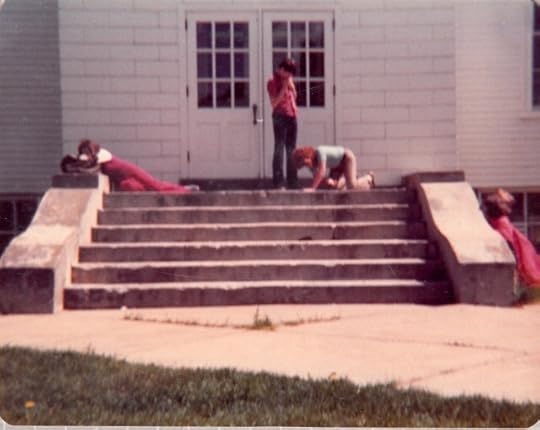
scenes from Androcles and the Lion performed by 7th grade students at Wilton Academy 1976
So, dear reader, I chose writing. I have no regrets, and I can still look back fondly on my early theatrical experiences. A few of them even turn up in my novels.
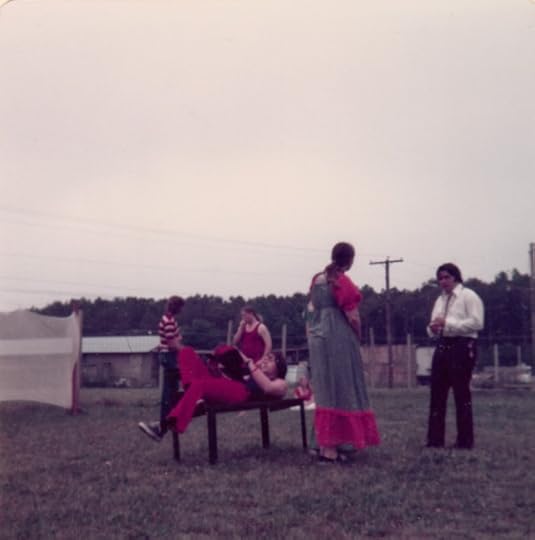
As You Like It, acting class project when I taught at Tidewater Community College, 1973
Kathy Lynn Emerson/Kaitlyn Dunnett has had sixty-four books traditionally published and has self published others. She won the Agatha Award and was an Anthony and Macavity finalist for best mystery nonfiction of 2008 for How to Write Killer Historical Mysteries and was an Agatha Award finalist in 2015 in the best mystery short story category. In 2023 she won the Lea Wait Award for “excellence and achievement” from the Maine Writers and Publishers Alliance. She was the Malice Domestic Guest of Honor in 2014. She is currently working on creating new omnibus e-book editions of her backlist titles. Her website is www.KathyLynnEmerson.com.
Lea Wait's Blog
- Lea Wait's profile
- 509 followers



